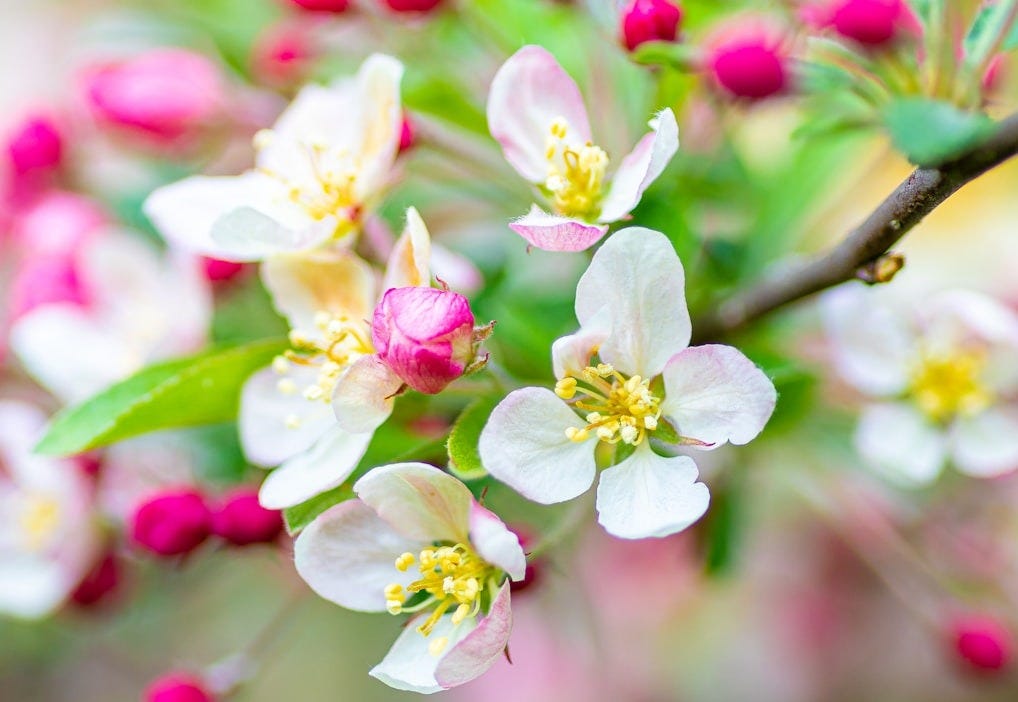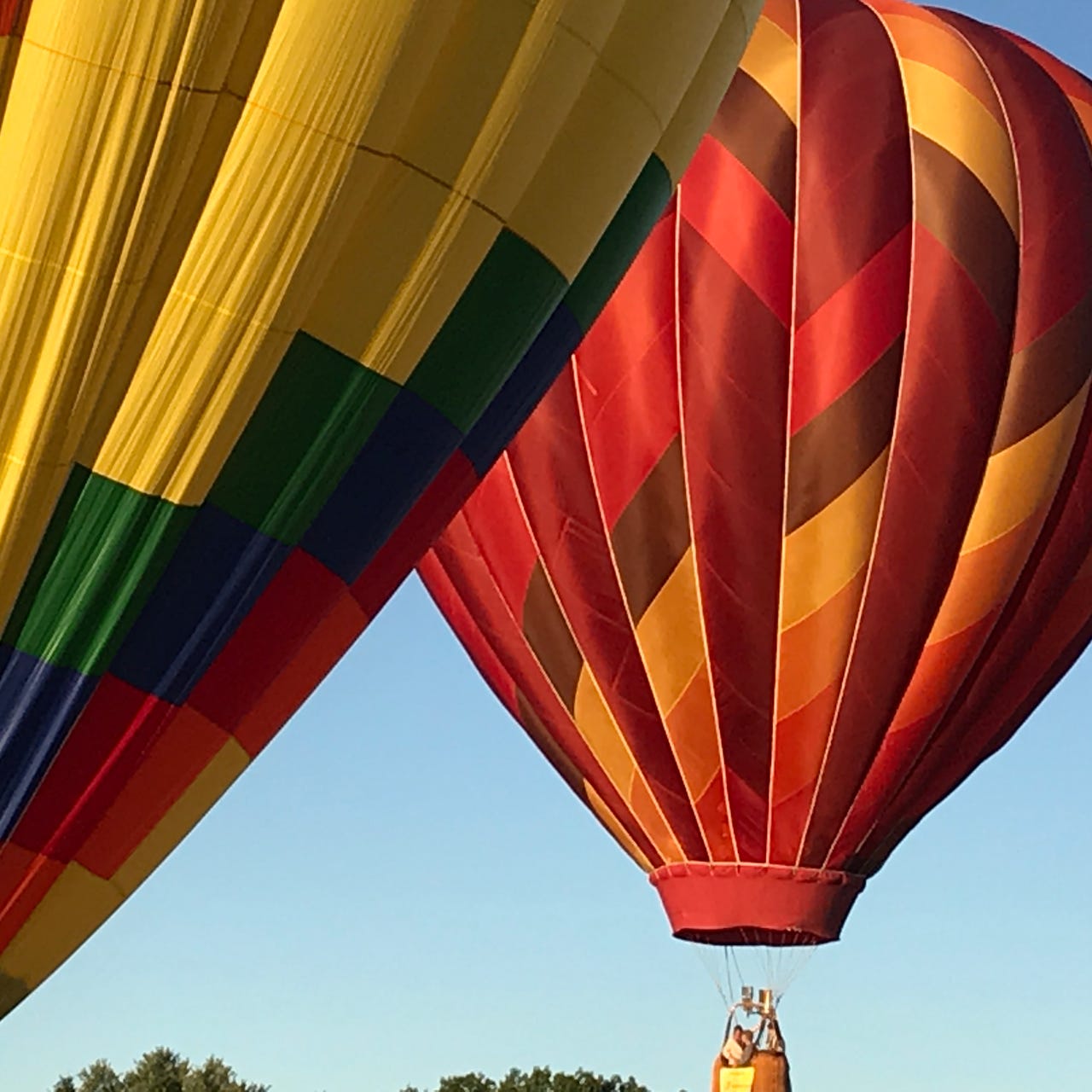It takes a lifetime to put things in the proper perspective. We struggle and labor with ourselves, all our meanness and lack of generosity staring us in the face, until we’re just about ready to throw in the towel, to declare ourselves irredeemable. Then one day, just an ordinary day of honking geese and floating clouds, we find ourselves at home in the world. Just in time to prepare for the final passage to the other side. Ironic, isn’t it? But this isn’t a goof. It isn’t a trick that is being played on us. On the contrary, contemplating mortality is the primary and most profound exercise of the imagination. It reminds us that nature is our nature and that it is in the nature of all beings to be born and to die. Once I’ve faced mortality, I can sometimes lower myself into life like a bubble bath. I can find a worthiness in myself that I had not previously allowed.
Yesterday, celebrating Mother’s Day at my son’s house, I got to be with the crabapple tree that we gave him and our daughter-in-law when they bought their house six or seven years ago. I feel especially maternal when I look at that tree and marvel at its pinkish purple blossoms that appear fleetingly for a few days each spring. The crabapple in bloom is almost painfully beautiful and short-lived like fireflies. I find myself gasping for breath, so concentrated is its reference to joy and loss, to appearance and disappearance. My grandson cut a thin branch and brought it inside with an assortment of dark and light lilacs grouped together in a glass vase. The cut crabapple somehow changed color. It became a dusty rose that caused me to swoon. And all the harshness in the world bowed down to it, prostrating itself at the roots of the beautiful tree.

It’s illuminating to imagine loving and beauty and generosity inspiring that kind of response, that kind of adoration, instead of wealth and power and domination. We forget that these responses are not given. They are chosen. The choice to worship respect and compassion requires our constant love and attention. Faith traditions arise out of the human need to impart meaning to what would otherwise be an even more chaotic world. We do not have any agency over the when of our birth or the when of our death so we create elaborate systems to account for and ameliorate our vulnerability and terror. That’s what religion purports to do. It originates in awe and amazement. The Earth, the Garden of Eden, takes our breath away. Our children fill us with delight. But quickly the impulse to love all of creation is overtaken by its opposite, the impulse to dominate, enslave, enrich the few and impoverish the rest. A hierarchy arises and very cruel and ignorant and vulgar people become the taskmasters, people whose hearts are not touched by the color of crabapple.
What are the conditions under which something so lovely can grow? The tree requires a certain composition of soil, sunshine and rain to remain healthy. Children need food and shelter and loving touch to thrive. Now we are learning the hard way that democracy itself is a garden of human potential. In a perfect world, people support one another and foster learning and growth. Democracy is not an abstraction. It requires our loving attention in order to flourish. It is a construct, part of the complex ecology of human life, and must be tended like your baby, your garden, your marriage.
Three Yale professors who study authoritarianism have collaborated on an article in the New York Times listen here. The article argues that it is only our awareness of the potential mortality of democracies that can prepare us to defend them. It’s the garden that must be tended lest it become parched and overgrown with weeds like the political system in Hungary after a period of democratic flourishing. At the risk of overextending the botanical metaphor, freedom of speech is the sunshine and rain that preserve our fragile form of government. The courts, the media and the universities are the tools that aerate the soil of our way of life. To be sure, there have been seasons of flooding and seasons of drought, but we have not seen such a threat to the viability of our democracy, at least not in my lifetime. It’s hard to imagine a death such as that but then all deaths are unimaginable, especially one’s own. Contemplating mortality is once again the most profound exercise of the human imagination.
*******\***************************************************************************************
Many Voices will now accept contributions from all subscribers. At this critical time, we need to hear what everyone has to say. Please let me know if you have work that you would like to send to seventysomething for our Many Voices feature. Make your voice heard. Write to me at seventysomething9@gmail.com.
Please consider upgrading to a paid subscription to support seventysomething and have access to the archives. Your ideas are always welcome.
*************************************************************************************************************
Copies of my 2019 essay collection, Twilight Time: Aging in Amazement, are available directly from me (signed) or from your local bookseller.





What's with the hit on Hungary all of a sudden?
Beautiful piece my dear. Brava